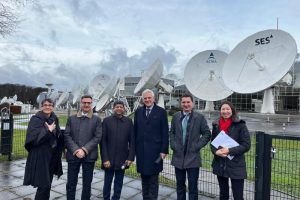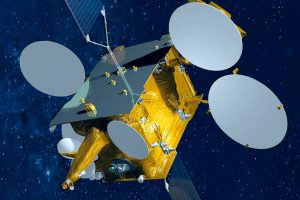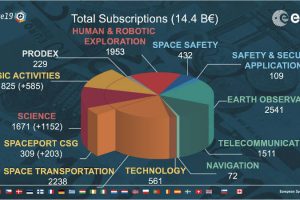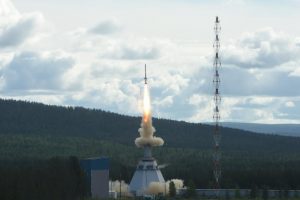The European Commission, the European Investment Bank (EIB), and the European Space Agency (ESA) are joining forces to help strengthen the continent’s space sector. The European organisations signed a collaboration arrangement that will include the involvement of SMEs and start-ups. They say that – despite existing funding initiatives such as CASSINI, with its €1 billion investment capacity – “access to ...
Tag Archives: European Space Agency
Earth to Space laser comms needs special tuning
ESA is looking into using lasers to send data from Earth to geostationary orbit. It operates the European Data Relay System (EDRS) – two payloads, on two different satellites, which communicate with a constellation of low earth orbit planet-monitoring satellites called Sentinels. Currently Sentinel-EDRS communication is by laser and the EDRS-Earth downlink is radio. “The challenge is that the growing ...
Space instrument spurns stepper for brushed dc motor
BAMMsat-on-BEXUS is an attempt to create a miniaturised bio-lab compatible with 3U CubeSats, run by academics and students from Cranfield University and the University of Exeter. “Researching the effects of microgravity and radiation in on-ground facilities has technical constraints that can add complexity to data interpretation,” said project head and Cranfield PhD student Aqeel Shamsul. “However, in-flight experiments come with their ...
ESA wins funding boost for space R&D
ESA’s Council at Ministerial Level, Space19+, has concluded in Seville, Spain, with the endorsement of a funding boost for the ESA and the European space sector. The meeting brought together ministers with responsibility for space activities in Europe, along with Canada and observers from the EU. Member states were asked to approve a set of programmes to secure Europe’s independent ...
Prints in space
A collaboration of Graphene Flagship partners, the European Space Agency (ESA) and the Swedish Space Corporation (SSC) tests the limits of the ‘supermaterial’ graphene to determine its properties and suitability in a zero-gravity environment. To test the possibilities of printing graphene inks in space, Graphene Flagship partners Université Libre de Bruxelles, University of Pisa and the University of Cambridge, in collaboration ...
Satellites, sensors, and the future of the space market
It is anticipated that satellites will represent the single largest constituent market of this industry, writes Paul Jerram. For a long time, going into space was all about discovery and expanding humanity’s understanding of the universe. It still is, but now it is also much more. Space has become a practical answer to problems in areas such as security, defence, ...
Airbus and ESA hope space will encourage young engineers
Airbus has teamed up with the European Space Agency (ESA) and Autodesk in an educational initiative which taps into the excitement of space exploration. The Airbus Foundation, ESA and Autodesk have launched an educational online competition called Moon Camp, aimed at fostering interest amongst school students in Science, Technology, Engineering and Mathematics (STEM). The “Moon camp” competition will ask school ...
Raspberry Pi to be launched into space
Two Raspberry Pi computers are to be taken into space. British Astronaut Tim Peake will take the Raspberry Pis to the International Space Station as part of a school coding competition organised by UK Space and the European Space Agency. School students will be asked to devise and code their own apps or experiment to run on a Raspberry Pi ...
Huge investment in UK space industry
The UK space industry is to get a huge cash injection to support big expansion and increases its importance to the national economy. The UK Space Agency is to invest £1.2bn in a range of space projects. The aim, said the Government Agency is to “provide the UK with increased leadership in a rapidly growing global sector and building on ...
Space: ESA – Europe forges ahead in space
For the European Space Agency, 2012 has been a year that opened with great success with the maiden flight of its all-new light launcher Vega, and has moved into a phase of preparation for an ambitious programme of science and exploration, along with the exploitation of space assets. Four key areas of activity are in focus: access to space, navigation, Earth observation and deep space exploration.
 Electronics Weekly Electronics Design & Components Tech News
Electronics Weekly Electronics Design & Components Tech News







